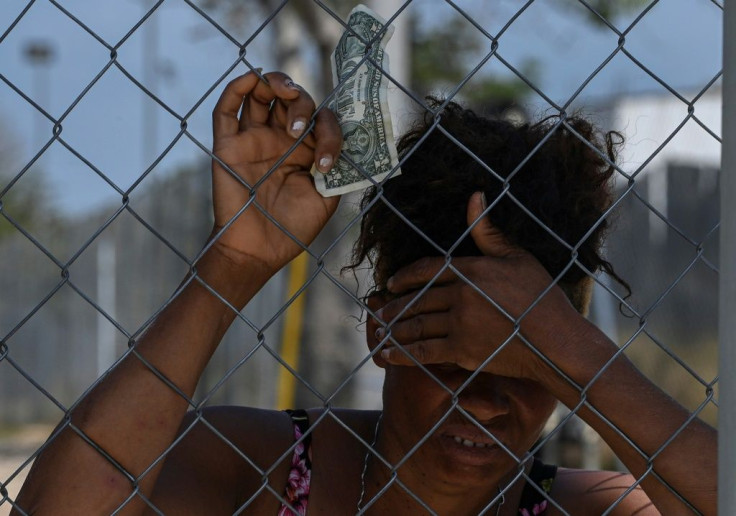UN Rights Chief Hails US Shift From Trump Migration Policies
The UN rights chief on Friday celebrated the shift in the United States under President Joe Biden away from a range of immigration policies introduced under his predecessor Donald Trump.
In her annual global overview of the human rights situation around the world, Michelle Bachelet voiced deep concern over violations committed in a wide range of countries, but was upbeat when her attention turned to the United States.
Speaking in a video message to the UN Human Rights Council, Bachelet said she welcomed "new steps to end several migration policies that violated the human rights of migrants and refugees".
Trump mounted a hardline effort to halt illegal immigration, slash legal immigration and drive out undocumented immigrants, even those in the country for decades.
Bachelet highlighted in particular Biden's executive orders ending a widely criticised Trump policy which separated children from thousands of migrant families.
She urged Washington to "tackle remaining issues, such as the massive detention of migrants" and hailed "broad new measures to tackle structural inequalities and systemic racism," including executive actions by Biden "to redress racially discriminatory federal housing policies (and) combat xenophobia."
In her speech, the UN High Commissioner for Human Rights meanwhile was less optimistic about the rights situation in Washington's top rivals China and Russia.
She voiced concern over China's curtailment of "fundamental rights and civic freedoms... in the name of national security and the Covid-19 response."

"Activists, lawyers and human rights defenders, as well as some foreign nationals, face arbitrary criminal charges, detention or unfair trials," she said.
The former Chilean president highlighted in particular abuses in Hong Kong since the introduction of a controversial new national security law, pointing out that more than 600 people there were "being investigated for participating in various forms of protests".
Bachelet also voiced concern about the situation in China's northwestern Xinjiang region, where rights groups believe at least one million Uighurs and other mostly Muslim minorities have been incarcerated in camps.
After initially denying the camps existed, Beijing later defended them as vocational training centres aimed at reducing the appeal of Islamic extremism.
"Information that is in the public domain indicates the need for independent and comprehensive assessment of the human rights situation," Bachelet said.
She said her office was continuing to "assess the alleged patterns of human rights violations, including reports of arbitrary detention, ill-treatment and sexual violence in institutions, coercive labour practices, and erosion of social and cultural rights."
As for Russia, Bachelet voiced particular concern over new legal provisions that took effect last year that "further limit fundamental freedoms, including the constitutionally guaranteed rights to free expression, peaceful assembly and association."
At the same time, "existing restrictive laws have continued to be harshly enforced, including during recent demonstrations across the country," she said.
However, Bachelet made no mention of Alexei Navalny, President Vladimir Putin's most prominent opponent who was transferred Thursday to a penal colony after being sentenced this month to two years and six months there for breaching parole terms while recovering in Germany from a poisoning attack.
© Copyright AFP 2024. All rights reserved.







